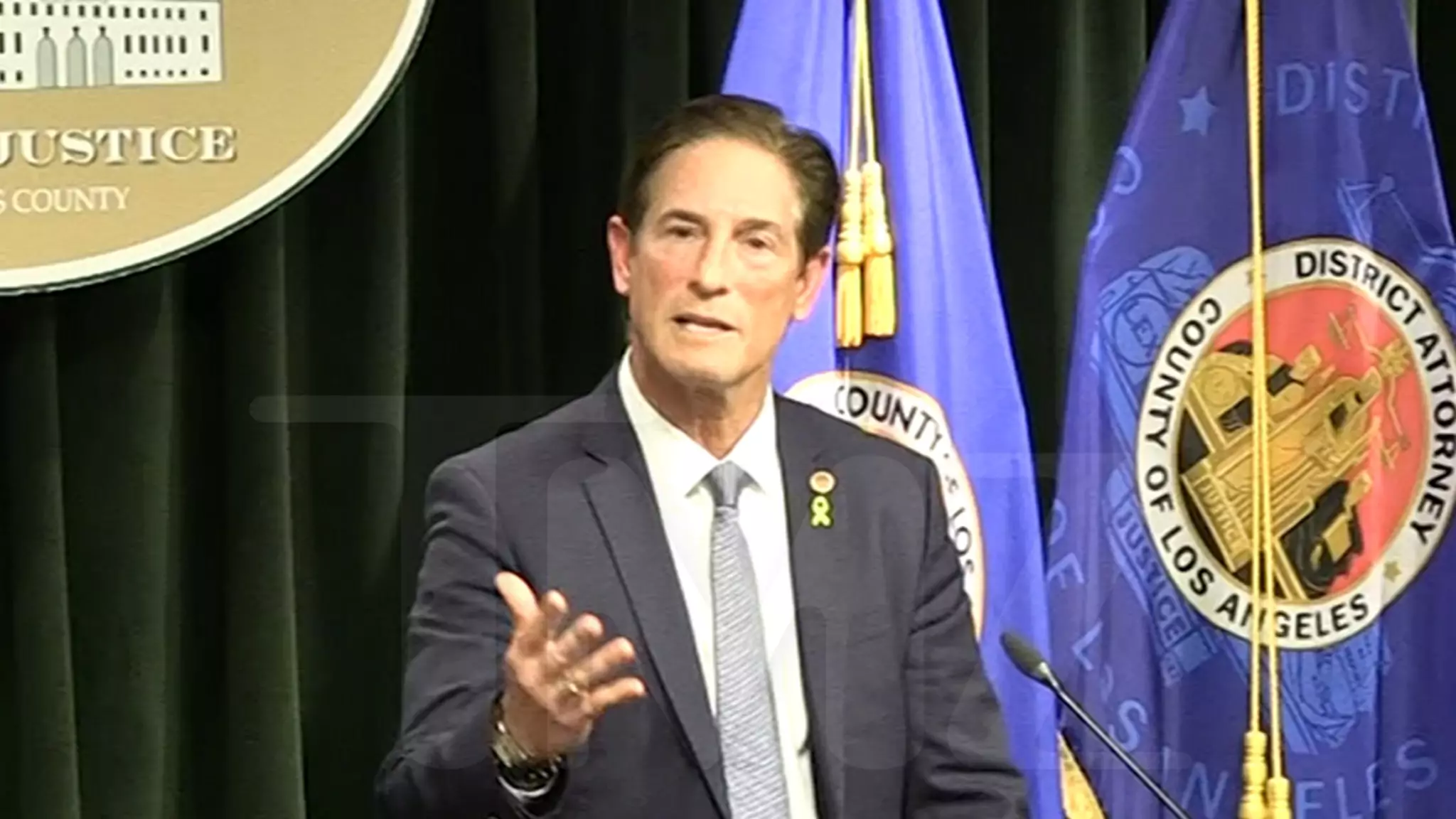The Menendez brothers, Erik and Lyle, have found themselves at the center of ongoing legal controversy that traces back to the shocking events of 1989, when their parents, Jose and Kitty Menendez, were brutally murdered. Recently, a pivotal meeting took place between the brothers’ relatives and Los Angeles County District Attorney Nathan Hochman, yet details about the dialogue have been scarce. Following the meeting, Hochman characterized it as “productive,” but he refrained from providing any specifics about the conversations or the perspectives shared.
This diplomatic silence from both parties raises questions about the potential shifts in the legal landscape surrounding the case. The nuances of family dynamics and the realities of the justice system come into play as various relatives become involved, some supporting the brothers’ release while others prefer to stand against it. Hochman’s statement—that the opinions of relatives, while important, are secondary to the material substance of their discourse—is telling of a broader legal philosophy that prioritizes judicial process over familial sentiment.
The Coalition and Its Efforts
Erik and Lyle Menendez’s relatives have not remained passive. Over the years, they have established the Justice for Erik and Lyle Coalition, an entity dedicated to advocating for the brothers’ freedom. This group is founded on the belief that rehabilitation is possible and that after nearly 35 years in prison, the Menendez brothers deserve a chance at redemption. Their families emphasize that the brothers have exhibited good behavior during their time behind bars, countering the narrative that initially condemned them after the tragic crimes.
In a historical context, the former Los Angeles County District Attorney George Gascón supported resentencing the brothers, highlighting their transformation as inmates. However, the political weight of such endorsements can shift dramatically with new leadership; Hochman’s election has been a game changer. With his victory, the timeline for any hearings regarding the brothers’ potential resentencing has moved to 2025, creating further uncertainty about their futures.
The Road Ahead
Hochman’s reluctance to publicly commit to any stance on the case indicates that he is weighing his options carefully. Engaging with multiple family members, including those opposed to Erik and Lyle’s release, suggests that Hochman is genuinely seeking a balanced viewpoint. Yet, the fate of the brothers is intertwined with the intricacies of public sentiment and political implications because any decision made will undoubtedly echo in the community and legal circles.
The members of the Menendez brothers’ legal team, including prominent attorney Mark Geragos, remain adamant in their defense, but their efforts are currently met with cautious optimism rather than robust assurance. As the date for the resentencing hearing looms on the horizon, the dynamics within this high-profile case underscore how justice is often as much about perception as it is about precedent.
The future for Erik and Lyle Menendez remains clouded but filled with possibilities for their families. The ongoing dialogue between various stakeholders signals a significant chapter in a saga that continues to provoke emotion, debate, and ultimately, the potential for change in the judicial system.

